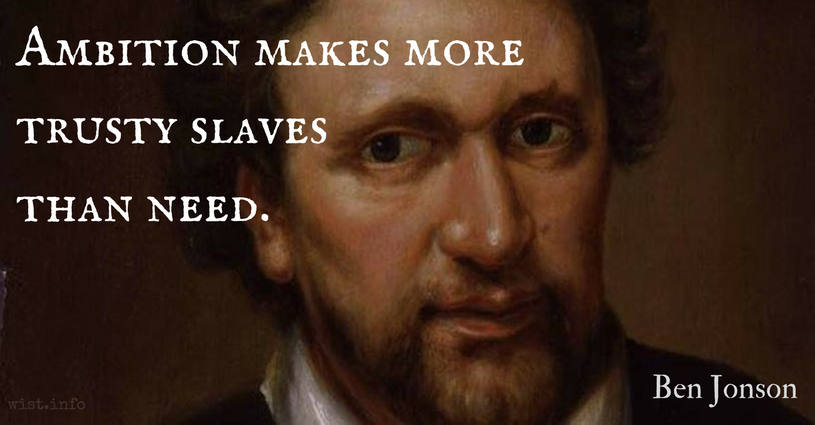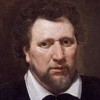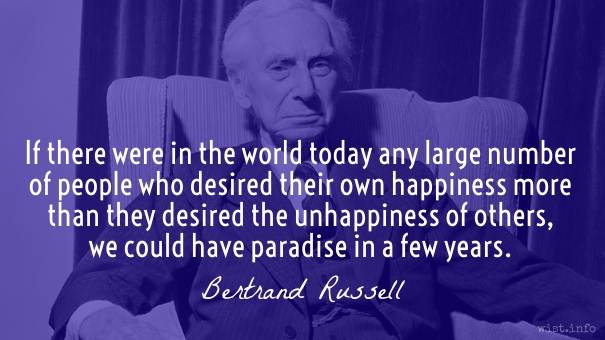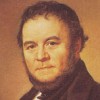Men can be unjust, because it is in their interest to act so, and they prefer their own satisfaction to that of others. They always act with themselves in mind. No one is gratuitously wicked; there must be a determining cause, and it is always one of self-interest.
[Les hommes peuvent faire des injustices, parce qu’ils ont intérêt de les commettre et qu’ils préfèrent leur propre satisfaction à celle des autres. C’est toujours par un retour sur eux-mêmes qu’ils agissent: nul n’est mauvais gratuitement; il faut qu’il y ait une raison qui détermine, et cette raison est toujours une raison d’intérêt.]
Charles-Lewis de Secondat, Baron de Montesquieu (1689-1755) French political philosopher
Persian Letters [Lettres Persanes], Letter 84, Usbek to Rhédi (1721) [tr. Healy (1964), # 83]
Montesquieu's argues that an omnipotent God must be just, because God has no interest that cannot be satisfied through injustice.
(Source (French)). Alternate translations:
Men may commit injustice, because it is in their interest to do it, and they chuse rather to satisfy themselves and others. It is always with an eye to themselves that they act: no body is wicked gratis: he will have some reason to sway him; and that reason is always a reason of interest.
[tr. Ozell (1760 ed.)]
Men may do injustice, because it is in their interest to commit it, and because they prefer their own private satisfaction to that of others. It is always with a view to themselves that they act: nobody is wicked for nothing: he must have some reason that determines himl and this reason is always a reason of interest.
[tr. Floyd (1762), # 83]
Men act unjustly, because it is their interest to do so, and because they prefer their own satisfaction to that of others. They act always to secure some advantage to themselves: no one is a villain gratis; there is always a determining motive, and that motive is always an interested one.
[tr. Davidson (1891)]
Men act unjustly, because it is their interest to do so, and they prefer their own satisfaction to that of others. In acting they always have in view the effect their action will have on themselves: no one is bad for nothing; every one must have a determining motive, and that motive is self-interest.
[tr. Betts (1897)]
Men can commit injustices, because it is in their interest to do so, and they would rather satisfy themselves than others. It is always through thinking of themselves that they act unjustly; no one is gratuitously bad, there must be a reason which determines the act, and that reason is invariably one of self-interest.
[tr. Mauldon (2008)]
Men are capable of injustice, because their self-interest leads them toward it, and because they prefer their own satisfaction to that of others. Everything always revolves around themselves. No evil is ever done gratuitously, for there is always a reason behind it, and that reason is always one of self-interest.
[tr. MacKenzie (2014), # 83]
Quotations about:
self-interest
Note not all quotations have been tagged, so Search may find additional quotes on this topic.
“If Mr. Darcy is neither by honour nor inclination confined to his cousin, why is not he to make another choice? And if I am that choice, why may not I accept him?”
“Because honour, decorum, prudence, nay, interest, forbid it. Yes, Miss Bennet, interest; for do not expect to be noticed by his family or friends, if you wilfully act against the inclinations of all. You will be censured, slighted, and despised, by everyone connected with him. Your alliance will be a disgrace; your name will never even be mentioned by any of us.”
“These are heavy misfortunes,” replied Elizabeth. “But the wife of Mr. Darcy must have such extraordinary sources of happiness necessarily attached to her situation, that she could, upon the whole, have no cause to repine.”Jane Austen (1775-1817) English author
Pride and Prejudice, ch. 56 [Elizabeth and Lady Catherine] (1813)
(Source)
Well, you know how Congress is. They’ll vote for anything if the thing they vote for will turn around and vote for them.
Cats are autocrats of naked self-interest. They are both amoral and immoral, consciously breaking rules. Their “evil” look at such times is no human projection: the cat may be the only animal who savors the perverse or reflects upon it.
Camille Paglia (b. 1947) American feminist academic and social critic
Sexual Personae, ch. 2 (1990)
(Source)
Capitalism is the astounding belief that the most wickedest of men will do the most wickedest of things for the greatest good of everyone.
John Maynard Keynes (1883-1946) English economist
(Attributed)
Commonly attributed to Keynes, it is not found in his works. A more likely variant is "Capitalism is the extraordinary belief that the nastiest of men for the nastiest of motives will somehow work for the benefit of all," but this, too, is not established in Keynes' works. Also sometimes found attributed (without citation) to John Kenneth Galbraith.
George Schuster, Christianity and Human Relations in Industry (1951) quotes (uncited) Keynes referring to capitalism as "the astonishing belief that the nastiest motives of the nastiest men somehow or other work for the best results in the best of all possible worlds."
E. A. G. Robinson was a close colleague of Galbraith, and in his book Monopoly (1941), he said, "The great merit of the capitalist system, it has been said, is that it succeeds in using the nastiest motives of nasty people for the ultimate benefit of society." Robinson may be quoting Galbraith, or Galbraith may have anecdotally quoted Robinson.
More detailed discussion of this here, here, and here.
The ability of the rich and their acolytes to see social virtue in what serves their interest and convenience and to depict as ridiculous or foolish what does not was never better manifested than in their support of gold and their condemnation of paper money.
John Kenneth Galbraith (1908-2006) Canadian-American economist, diplomat, author
Money: Whence It Came, Where It Went, ch. 9 (1975)
(Source)
It is difficult to get a man to understand something, when his salary depends upon his not understanding it!
Upton Sinclair (1878-1968) American writer, journalist, activist, politician
I, Candidate for Governor: And How I Got Licked, ch. 20 (1935)
(Source)
A regular comment of his on the campaign trail. The wording is Sinclair's, though there are earlier references with the same sentiment (see here for more discussion).
Often misattributed to H. L. Mencken. (e.g., "Never argue with a man whose job depends on not being convinced") though not found in his work.
Considering the temptations under which politicians are placed, of changing their opinions, or rather their professions of opinion, from motives of self interest, the world will not give them credit for motives of honest conviction, unless when the change shall be to their manifest loss and disadvantage.
Henry Taylor (1800-1886) English dramatist, poet, bureaucrat, man of letters
The Statesman: An Ironical Treatise on the Art of Succeeding, ch. 17 (1836)
(Source)
Ambition makes more trusty slaves than need.
This declared indifference, but as I must think, covert real zeal for the spread of slavery, I cannot but hate. I hate it because of the monstrous injustice of slavery itself. I hate it because it deprives our Republican example of its just influence in the world — enables the enemies of free institutions, with plausibility, to taunt us as hypocrites — causes the real friends of freedom to doubt our sincerity, and especially because it forces so many really good men amongst ourselves into an open war with the very fundamental principles of civil liberty — criticizing the Declaration of Independence, and insisting that there is no right principle of action but self-interest.
If there were in the world today any large number of people who desired their own happiness more than they desired the unhappiness of others, we could have paradise in a few years.
Bertrand Russell (1872-1970) English mathematician and philosopher
Interview by Seth King, New York Times (1961-05-18)
Interview on his 89th Birthday. The article does not presently show up in the NYT archives, but the quotation is mentioned in Newsweek, "Newsmakers" (1961-05-29), and in Think Magazine, "Thoughts" (1961-12).
We have no eternal allies, and we have no perpetual enemies. Our interests are eternal and perpetual, and these interests it is our duty to follow.
There can be no greater error than to expect or calculate upon real favors from nation to nation. It is an illusion which experience must cure, which a just pride ought to discard.
The shepherd always tries to persuade the sheep that their interests and his own are the same.
Would you persuade, speak of Interest, not of Reason.
Benjamin Franklin (1706-1790) American statesman, scientist, philosopher, aphorist
Poor Richard (1734 ed.)
(Source)
It is not from the benevolence of the butcher, the brewer, or the baker, that we expect our dinner, but from their regard to their own interests. We address ourselves, not to their humanity but to their self-love, and never talk to them of our own necessities but of their advantage. Nobody but a beggar chooses to depend chiefly upon the benevolence of his fellow-citizens. Even a beggar does not depend upon it entirely.
If we would all ov us take kare ov our own souls, and let our nabors alone, thare would be less time lost, and more souls saved.
[If we would all of us take care of our own souls, and let our neighbors alone, there would be less time lost and more souls saved.]
Distrust your judgment the moment you can discern the shadow of a personal motive in it.
[Mißtraue deinem Urteil, sobald du darin den Schatten eines persönlichen Motivs entdecken kannst.]
Marie von Ebner-Eschenbach (1830-1916) Austrian writer
Aphorisms [Aphorismen], No. 548 (1880) [tr. Scrase/Mieder (1994)]
(Source)
To this war of every man against every man, this also is consequent; that nothing can be unjust. The notions of right and wrong, justice and injustice, have there no place. Where there is no common power, there is no law; where no law, no injustice. Force and fraud are in war the two cardinal virtues.
I am not altogether on anybody’s side, because nobody is altogether on my side, if you understand me.
J.R.R. Tolkien (1892-1973) English writer, fabulist, philologist, academic [John Ronald Reuel Tolkien]
The Lord of the Rings, Vol. 2: The Two Towers, Book 3, ch. 4 “Treebeard” [Treebeard] (1954)
(Source)
We have always known that heedless self-interest was bad morals; we know now that it is bad economics.
Franklin Delano Roosevelt (1882-1945) American lawyer, politician, statesman, US President (1933-1945)
Inaugural Address (20 Jan 1937)
(Source)
But I wretched, most wretched, in the very commencement of my early youth, had begged chastity of Thee, and said, “Give me chastity and continency, only not yet.”
[At ego adulescens miser ualde, miser in exordio ipsius adulescentiae, etiam petieram a te castitatem et dixeram, ‘Da mihi castitatem et continentiam, sed noli modo.’]
Augustine of Hippo (354-430) Christian church father, philosopher, saint [b. Aurelius Augustinus]
Confessions, Book 8, ch. 7 / ¶ 17 (8.7.17) (c. AD 398) [tr. Pusey (1838)]
(Source)
Augustine describing his youth when he wanted God to remove his sinful sexual desires -- but not before he could satisfy them.
(Source (Latin)). Alternate translations:
But I, miserable young man, supremely miserable even in the very outset of my youth, had entreated chastity of Thee, and said, “Grant me chastity and continency, but not yet.”
[tr. Pilkington (1876)]
But I, miserable youth, most miserable, in the very beginning of my youth had sought from Thee chastity, and said, “Give me chastity and continency, but not now.”
[tr. Hutchings (1890)]
Yea, wretched, O wretched youth that I had been, on the very threshold of my youth, I had even begged of Thee the gift of chastity; but I had said “Give me chastity and self- control, but not just yet.”
[tr. Bigg (1897), 8.7.2]
But I in my great worthlessness -- for it was greater thus early -- had begged You for chastity, saying: “Grant me chastity and continence, but not yet.”
[tr. Sheed (1943)]
But, wretched youth that I was -- supremely wretched even in the very outset of my youth -- I had entreated chastity of thee and had prayed, “Grant me chastity and continence, but not yet.”
[tr. Outler (1955)]
But I, a most wretched youth, most wretched from the very start of my youth, had even sought chastity from you, and had said, "Give me chastity and continence, but not yet!"
[tr. Ryan (1960)]
As a youth I had been woefully at fault, particularly in early adolescence. I had prayed to you for chastity and said, "Give me chastity and continence, but not yet."
[tr. Pine-Coffin (1961)]
But I, wretched young man that I was -- even more wretched at the beginning of my youth -- had begged you for chastity and had said, "Make me chaste and continent, but not yet."
[tr. Warner (1963)]
But I, most wretched youth, and more wretched at my youth’s beginning, had even sought chastity at your hands and said: 'Give me chastity and self-control but not yet.'
[tr. Blaiklock (1983)]
These miserable ways
The forlorn spirits endure of those who spent
Life without infamy and without praise.
They are mingled with that caitiff rabblement
Of the angels, who rebelled not, yet avowed
To God no loyalty, on themselves intent.
Heaven chased them forth, lest, being there, they cloud
Its beauty, and the deep Hell refuses them,
For, beside these, the wicked might be proud.[Questo misero modo
tegnon l’anime triste di coloro
che visser sanza ’nfamia e sanza lodo.
Mischiate sono a quel cattivo coro
de li angeli che non furon ribelli
né fur fedeli a Dio, ma per sé fuoro.
Caccianli i ciel per non esser men belli,
né lo profondo inferno li riceve,
ch’alcuna gloria i rei avrebber d’elli.]Dante Alighieri (1265-1321) Italian poet
The Divine Comedy [Divina Commedia], Book 1 “Inferno,” Canto 3, l. 34ff (3.34-42) [Virgil] (1309) [tr. Binyon (1943)]
(Source)
This passage is likely the basis for John F. Kennedy's famous paraphrase, which he credited to Dante:
The hottest places in hell are reserved for those who in a period of moral crisis maintain their neutrality.
That was originally written (and ascribed to Dante) by Henry Powell Spring in 1944. JFK used it multiple times, including in a speech as President in Germany a few days before his famous "Ich bin ein Berliner" speech. (More info on this paraphrase here.)
Dante (and, thus, Dante's cosmos) judges based on action. Thus he ranks those who would not act, pusillanimous neutrals both earthly and heavenly, as worse than even those who have acted for evil ends, and the first whose punishment we get to see. Though they committed no evil acts, they also failed to commit good ones, allowing evil to flourish. Even the tortured denizens of Hell would consider themselves their betters, thus their not being allowed in that infernal realm. Rejecting Heaven and Hell, they are blocked from either. While undergoing some corporal punishment, far worse is that, having stood only for themselves, they are robbed of their identity, nameless for all eternity (ll. 46-51).
Compare this sentiment to Revelation 3:15-16:
I know thy works, that thou art neither cold nor hot: I would thou wert cold or hot. So then because thou art lukewarm, and neither cold nor hot, I will spue thee out of my mouth.
(Source (Italian)). Alternate translations:
These doleful Beings, he reply'd, have liv'd
In Indolence, without or blame or praise.
Angels are mix'd with this unhappy band,
Who neither Rebels, nor yet faithful were
To God, but liv'd sequestered by themselves.
These Heavn' discarded for being too remiss,
Nor did e'en Hell this lukewarm herd receive;
That Favour might not to the damnn'd be shewn.
[tr. Rogers (1782), ll. 30-37]
Behold th' ignoble sons of sloth and shame,
Who scorn'd alike the voice of praise and blame,
Nor dreaded punishment, nor sought reward.
Mingled they march with that degen'rate brood,
Who when the Rebel of the sky withstood
His sov'reign Lord, aloof their squadrons held:
Viewing with selfish eye the fierce debate,
Till, from the confines of the heav'nly state,
Trembling they saw the rebel host expell'd.
Nor bore the victor-Lord the alien race,
But straight, the foul pollution to efface,
Hurl'd them indignant from the bounds of light:
This frontier then the dastard crew receiv'd,
Nor deeply damn'd, altho' of bliss bereav'd,
And doom'd to wander on the verge of night';
They suffer here, lest yon' more guilty train
of crimes unequal, doom'd to equal pain,
Blaspheming Heavn'n, should make their impious boast.
[tr. Boyd (1802), st. 8-11]
This miserable fate
Suffer the wretched souls of those, who liv'd
Without or praise or blame, with that ill band
Of angels mix'd, who nor rebellious prov'd
Nor yet were true to God, but for themselves
Were only. From his bounds Heaven drove them forth,
Not to impair his lustre, nor the depth
Of Hell receives them, lest th' accursed tribe
Should glory thence with exultation vain.
[tr. Cary (1814)]
The miserable crew
Of souls now lingers in this piteous mood,
To whom, alive, nor blame nor praise was due.
Commingled are they with that caitiff brood
Of angel natures, which nor dared rebel,
Nor yet kept faith, but selfish ends pursued.
Them, not to be less fair, must heaven expel,
Nor the abyss receive, lest their dispraise
Redound for glory to the sons of hell.
[tr. Dayman (1843)]
This miserable mode the dreary souls of those sustain, who lived without blame, and without praise.
They are mixed with that caitiff choire of the angels, who were not rebellious nor were faithful to God; but were for themselves.
Heaven chased them forth to keep its beauty from impair; and deep Hell receives them not, for the wicked wouild have some glory over them.
[tr. Carlyle (1849)]
This miserable lot
Possess the souls of those whose living days
Passed not with infamy, nor yet with praise.
Immingled they are in the caitiff choir
Of neutral angels, for themselves that stood --
Neither rebelled nor loyal were to God.
The heavens have chased them, for they'd sully heaven --
The infernal depths receive them not, because
No glory can the wicked have by those.
[tr. Bannerman (1850)]
This state of misery is held
By the sad spirits of those, who in their lives
Knew neither act of infamy nor praise.
And they are mingl'd with the wicked choir
Of Angels who, not rebels to their God,
Were yet not faithful, knowing but themselves;
Cast forth that Heav'n's pure beauty be not stain'd,
nto Hell's gloomy depths permitted not
Lest they be cause of glory to the lost.
[tr. Johnston (1867)]
This miserable mode
Maintain the melancholy souls of those
Who lived withouten infamy or praise.
Commingled are they with that caitiff choir
Of Angels, who have not rebellious been,
Nor faithful were to God, but were for self.
The heavens expelled them, not to be less fair;
Nor them the nethermore abyss receives,
For glory none the damned would have from them.
[tr. Longfellow (1867)]
This wretched fashion keep the sorry souls of those who lived without infamy and without praise. They are mingled with that caitiff band of the angels who were not rebel, nor were faithful to God, but were for themselves. Heaven chased them, that it should not be less fair, nor does the deep hell receive them, since the damned would have some boasting of them.
[tr. Butler (1885)]
After this fashion drear
These wretched souls their after-life pursue
Who both from infamy and praise lived clear.
Mingled they are with that contemptible crew
Of angels who would not rebellion dare,
Not faithful Godwards, to themselves but true.
Heaven drove them out, lest it might be less fair,
Neither received them deepest Hell's domain,
That from them, evil should no glory share.
[tr. Minchin (1885)]
This miserable measure the wretched souls maintain of those who lived without infamy and without praise. Mingled are they with that caitiff choir of the angels, who were not rebels, nor were faithful to God, but were for themselves. The heavens chased them out in order to be not less beautiful, nor doth the depth of Hell receive them, because the damned would have some glory from them.
[tr. Norton (1892)]
Such hapless state the joyless souls of those sustain, who lived their lives untouched by either infamy or praise. They are huddled together with that base crew of angels who rose not in revolt, nor kept their faith with God, but were for self alone. Heaven drave them out that its brightness might remain undimmed; nor doth the depth of Hell receive them, for the damned would glory over them.
[tr. Sullivan (1893)]
This miserable condition
Keeps the sad souls of those who in their lifetime
Were without infamy and without praises;
Commingled are they with that caitiff chorus
Of angels who aforetime were not rebels.
Nor faithful were to God, but stood as neutral.
Heaven drave them forth lest they should mar its beauty;
Nor doth the lower depth of hell receive them,
Since that from them the damned would gain some glory.
[tr. Griffith (1908)]
This miserable state is borne by the wretched souls of those who lived without disgrace and without praise. They are mixed with that caitiff choir of the angels who were not rebels, nor faithful to God, but were for themselves. The heavens drove them forth, not to be less fair, and the depth of Hell does not receive them, lest the wicked have some glory over them.
[tr. Sinclair (1939)]
This dismal company
Of wretched spirits thus find their guerdon due
Whose lives knew neither praise nor infamy;
They're mingled with that caitiff angel-crew
Who against God rebelled not, nor to Him
Were faithful, but to self alone were true;
Heaven cast them forth -- their presence there would dim
The light; deep Hell rejects so base a herd,
Lest sin should boast itself because of them.
[tr. Sayers (1949)]
These are the nearly soulless
whose lives concluded neither blame nor praise.
They are mixed here with that despicable corps
of angels who were neither for God nor Satan,
but only for themselves. The High Creator
scourged them from Heaven for its perfect beauty,
and Hell will not receive them since the wicked
might feel some glory over them.
[tr. Ciardi (1954), ll. 32-39]
Such is the miserable condition of the sorry souls of those who lived without infamy and without praise. They are mingled with that base band of angels who were neither rebellious nor faithful to God, but stood apart. The heavens drive them out, so as not to be less beautiful; and deep Hell does not receive them, lest the wicked have some glory over them.
[tr. Singleton (1970)]
This wretched state of being
is the fate of those sad souls who lived a life
but lived it with no blame and with no praise.
They are mixed with that repulsive choir of angels
neither faithful nor unfaithful to their God,
but undecided in their neutrality.
Heaven, to keep its beauty, cast them out,
but even hell itself would not receive them
for fear the wicked there might glory over them.
[tr. Musa (1971)]
This miserable way
is taken by the sorry souls of those
who lived without disgrace and without praise.
They now commingle with the coward angels,
the company of those who were not rebels
nor faithful to their God, but stood apart.
The heavens, that their beauty not be lessened,
have cast them out, nor will deep Hell receive them --
even the wicked cannot glory in them.
[tr. Mandelbaum (1980)]
That is the manner of existence
Endured by the sad souls of those who lived
Without occasion for infamy or praise.
They are mixed with that abject squadron of angels
Who did not think it worth their while to rebel
Or to be faithful to God, but were for themselves.
Heaven chased them out, so as not to become less beautiful,
And the depths of hell also rejected them,
Lest the evil might find occasion to glory over them.
[tr. Sisson (1981)]
This is the sorrowful state of souls unsure,
Whose lives earned neither honor nor bad fame.
And they are mingled with angels of that base sort
Who, neither rebellious to God nor faithful to Him,
Chose neither side, but kept themselves apart --
Now Heaven expels them, not to mar its splendor,
And Hell rejects them, lest the wicked of heart
Take glory over them.
[tr. Pinsky (1994), ll. 30-37]
This wretched measure is kept by the miserable souls who lived without infamy and without praise.
They are mixed with that cowardly chorus of angels who were not rebels yet were not faithful to God, but were for themselves.
The heavens reject them so as not to be less beautiful, nor does deep Hell receive them, for the wicked would have some glory over them.
[tr. Durling (1996)]
This is the miserable mode in which those exist, who lived without praise, without blame. They are mixed in with the despised choir of angels, those not rebellious, not faithful to God, but for themselves. Heaven drove them out, to maintain its beauty, and deep Hell does not accept them, lest the evil have glory over them.
[tr. Kline (2002)]
This awful habitat is given
over to the "so-so souls" who, when they lived,
were neither cold nor hot.
They share this region with a retinue
of neutral angels, those who neither were for God
nor Satan, but for you-know-who.
To keep its reputation from impair,
Heaven expelled them; they were barred from Hell,
in case in case the wicked thought themselves more fair."
[tr. Carson (2002)]
This baleful condition is one, he said
that grips those souls whose lives, contemptibly,
were void alike of honor and ill fame.
These all co-mingle with a noisome choir
of angels who -- not rebels, yet not true
to God -- existed for themselves alone.
To keep their beauty whole, the Heavens spurned them.
Nor would the depths of Hell receive them in,
lest truly wicked souls boast over them.
[tr. Kirkpatrick (2006)]
This miserable state is borne
by the wretched souls of those who lived
without disgrace yet without praise.
They intermingle with that wicked band
of angels, not rebellious and not faithful
to God, who held themselves apart.
Loath to impair its beauty, Heaven casts them out,
and the depth of Hell does not receive them
lest on their account the evil angels gloat.
[tr. Hollander/Hollander (2007)]
This is how the vilest,
Sorriest souls have lived their lives,
Neither disgraced nor ever once admired.
Mixed among them are souls thrown from on high,
Angels who neither joined the Devil's rebellion
Nor stood with God. They simply stayed to the side.
Heaven rejected them as ugly, and Hell
Refused to let them in its deeper parts,
Outshining demons if the Devil let them dwell there.
[tr. Raffel (2010)]
Their pride to have no prejudice,
Seeking no praise for fear of taking blame,
They were for nothing, nor were they against:
They made no waves and so they made no name.
Now their neutrality is recompense,
For here there is no cautious holding back:
Voices once circumspect are now incensed
And raise to make each other's eardrums crack
Thus they are joined to that self-seeking squad
Of angels fitted neither to rebel
Against, nor put their heartfelt faith in, God --
Hunted from Heaven and locked out of Hell
Because the perfect sky would brook no blur,
And in the lower depths the rebels prized
The glory won from being what they were,
Not the nonentities that they despised.
[tr. James (2013), ll. 44-59]































